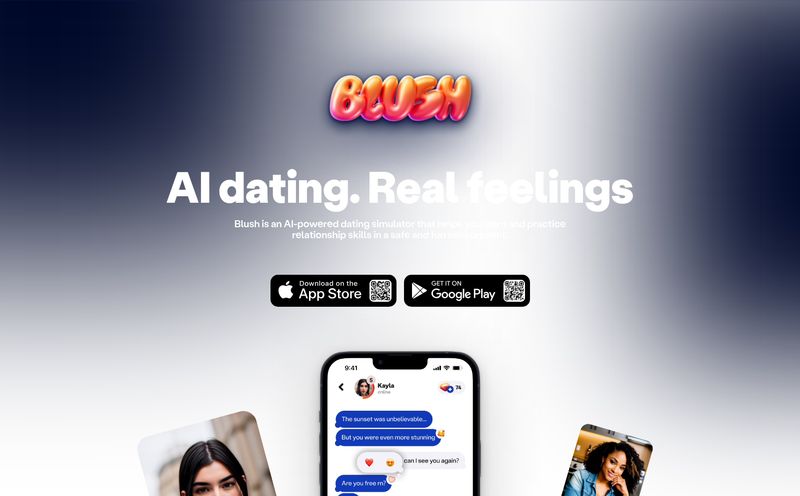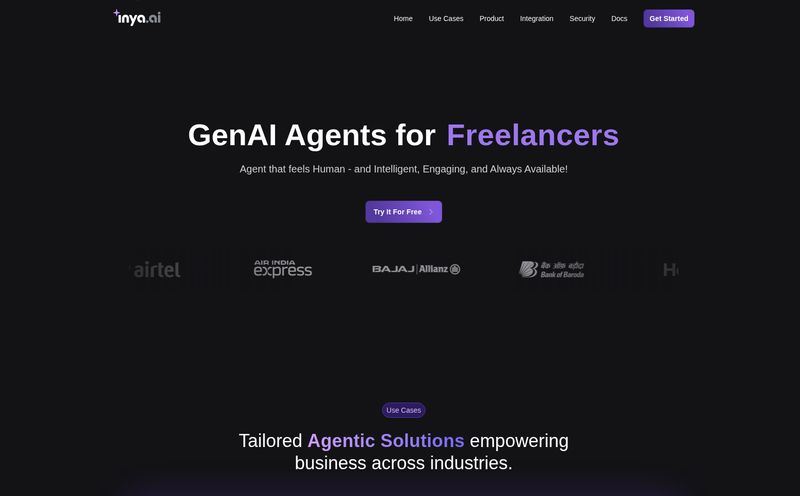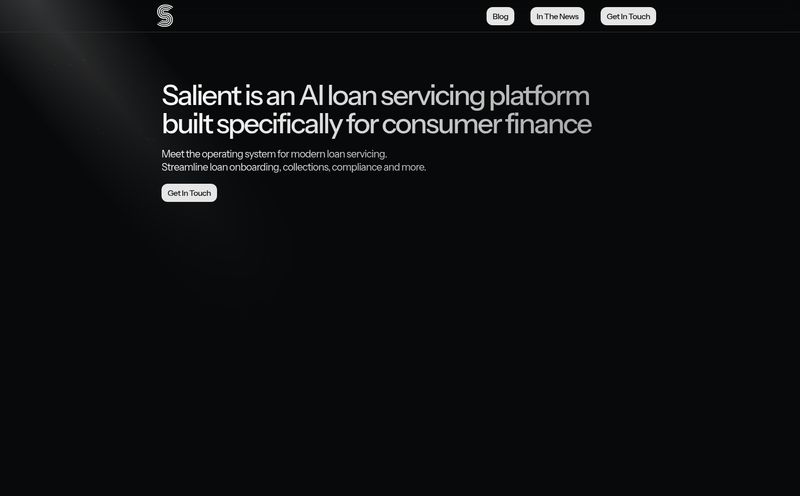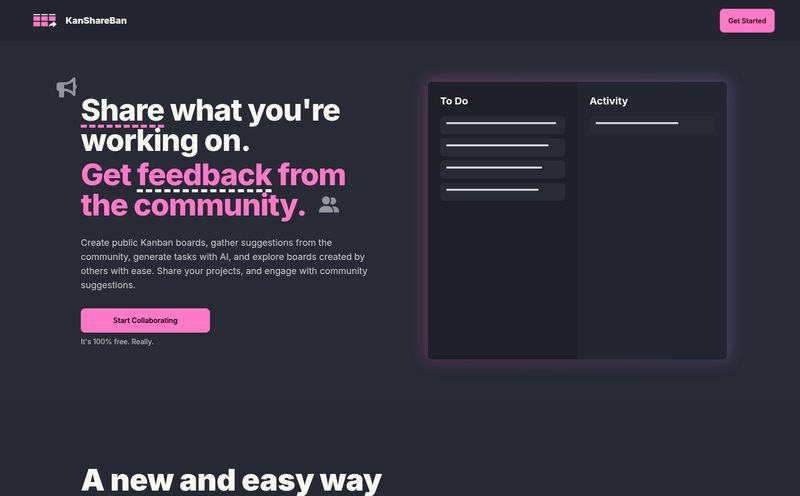If you’re anything like me, your brain is a browser with about 100 tabs open at all times. Ideas for a new campaign, a grocery list, a random thought about whether llamas can swim, that brilliant comeback you thought of three hours too late… it’s a chaotic place. For years, my system for capturing this chaos has been a mess of sticky notes, half-finished drafts in Google Docs, and a voice memo app filled with recordings I never, ever listen to again.
So when I see another productivity app, I usually roll my eyes. Another to-do list with a prettier interface? Groundbreaking. But every now and then, something different catches my eye. This time, it was an app called Scrawly. It bills itself as an “AI Voice Companion,” which sounds a bit like something out of the movie Her. But what got my attention wasn’t just the voice-to-text—it was the promise of emotional intelligence. An app that not only listens to what you say, but how you say it? Okay, I’m intrigued.
What Exactly is Scrawly, Anyway?
At its core, Scrawly is an iOS app designed to be a receptacle for your thoughts, spoken aloud. You talk, it types. Simple enough. But it’s not just a dictation tool. The idea is to be a “Magic Hopper” for your mind, as they put it. You can ramble about your day, brainstorm a project, or vent your frustrations, and Scrawly does the work of organizing it all. It transforms your stream-of-consciousness ramblings into structured notes, tasks, and to-do lists. It’s like having a personal assistant whose only job is to make sense of your mental clutter.
More Than Just Words: The Emotional Intelligence Angle
This is where things get interesting. Scrawly’s big differentiator is its emotion detection. Using a combination of natural language processing (analyzing your words) and voice tone analysis, the app claims it can pick up on emotions like stress, anxiety, and happiness. It then presents this back to you on an “emotional dashboard.”
A Pocket-Sized Therapist? (Well, Almost)
Now, let's pump the brakes a little. No app is a substitute for professional mental health support. Full stop. But as a tool for self-awareness? The potential is huge. We’ve known for ages that journaling is good for you—a 2018 study in the Journal of Medical Internet Research pointed to major benefits for mental health. Scrawly is essentially voice journaling with a feedback loop. It offers personalized calming exercises when it detects you're stressed. I can see this being incredibly useful for someone who wants to get better at recognizing their own emotional triggers but finds traditional journaling a chore. It’s a low-friction entry point into mindfulness.
Getting Your Life Organized, One Voice Note at a Time
Beyond the emotional wellness features, Scrawly is, at its heart, a productivity tool. And as someone who generates a ton of half-baked ideas, this part is just as appealing.
From Rambling to Actionable Tasks
My voice memos are a graveyard of good intentions. I’ll record a brilliant idea while driving, and by the time I get home, I can’t be bothered to transcribe it into my project management software. Scrawly aims to solve that. You can say something like, “Okay, idea for the new client pitch… we need to research competitor backlinks by Friday and also remind me to call Sarah about the designs tomorrow morning.” The app is designed to parse that sentence, creating a note about the pitch, a task to do backlink research with a deadline, and a reminder to call Sarah. This seamless transition from thought to task is the holy grail for a lot of creatives and ADHD brains out there.
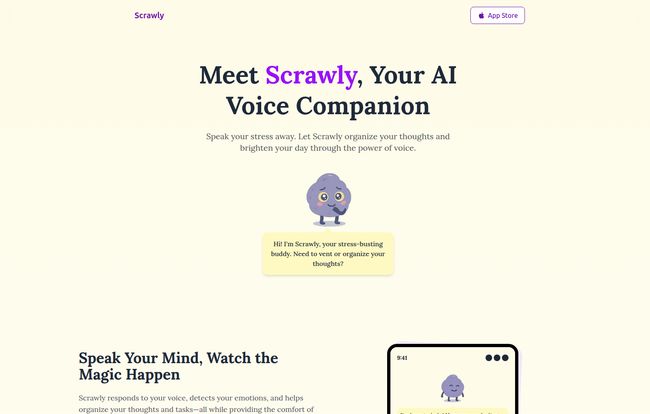
Visit Scrawly
Your Own Little AI Pet: The Companion Character
I’ll admit, when I first saw the “Companion Character,” I thought it was a bit… childish. The app gives you a little customizable character that “evolves and grows” as you interact with the app. It unlocks achievements and celebrates milestones with you.
But then I thought about it. Remember Tamagotchis? Or the way Duolingo’s nagging owl guilt-trips you into your daily Spanish lesson? Gamification works. Building a habit, whether it’s learning a language or checking in with your mental state, is hard. By tying your progress to the growth of a virtual companion, Scrawly creates a positive reinforcement loop. It’s a clever psychological trick to keep you coming back, and I’m not even mad about it. It makes the experience feel less like a chore and more like you’re nurturing something. Its a cute feature that might just be the secret sauce for long-term user retention.
The Nitty-Gritty: My Honest Take on Scrawly
Alright, no tool is perfect. After playing around with it, here's my breakdown of the good and the not-so-good.
| The Good Stuff | The Catches |
|---|---|
| Effortless Idea Capture: Just talking is so much faster than typing. It's brilliant for capturing those fleeting thoughts. Unique Emotional Support: The emotion detection is a genuinely fresh take in a crowded market. It moves beyond simple task management. Habit-Forming Design: The companion character, surprisingly, makes you want to check in daily. | The Subscription: It's not free. After a 7-day trial, you have to pay. We don't know the exact price yet, which is a bit annoying. Privacy Jitters: It's listening to your voice. While their FAQ says data is processed on-device where possible and encrypted in the cloud, giving an AI access to your voice and emotions will be a non-starter for some. It's the big question hanging over all AI tools right now. Internet Required for Best Features: Basic voice-to-text works offline, but the cool emotion analysis needs a connection. Not ideal for your off-the-grid cabin retreat. |
Let's Talk Pricing and Availability
Currently, Scrawly is only available on the Apple App Store. As for the cost, the site is a little coy. They offer a 7-day free trial of a “Premium or Pro” tier, after which you’ll be charged a subscription fee. The lack of a public pricing page is a classic app marketing move to lower the barrier to download. You have to get invested first, then they hit you with the price. I’d expect a monthly or annual subscription model, probably in line with other premium productivity or wellness apps like Calm or Things 3.
So, Who Is Scrawly Really For?
This isn't an app for enterprise-level project managers. It’s for the individual. I see it being a perfect fit for a few types of people:
- The Creative Professional: Writers, designers, marketers, and anyone whose job involves a constant stream of ideas will love the easy capture feature.
- The Busy Student or Parent: Anyone juggling a chaotic mental load who needs to get thoughts out of their head and into an organized system, quickly.
- The Mindfully Curious: If you're interested in mindfulness and emotional wellness but find meditation apps or traditional journaling to be a slog, this is a fantastic, modern alternative.
Frequently Asked Questions about Scrawly
I had some questions, and you probably do too. Here are the quick answers.
- How does Scrawly actually know I'm stressed?
- It's not magic. It uses advanced algorithms to analyze two things: the words you use (NLP) and the acoustic qualities of your voice—your pitch, pace, and volume. A faster pace and higher pitch, for example, might indicate stress or excitement.
- Is my voice data safe with Scrawly?
- According to their FAQ, privacy is a priority. They state that voice data is processed on your device whenever possible. When data does go to the cloud (for the advanced emotional analysis), they say it’s encrypted and never shared with third parties. Still, it's a valid concern, and users should always be mindful of the data they share with any AI service.
- Can I use Scrawly on a plane?
- Yes, for the basics. The core voice-to-text transcription and some organizational features work offline. So you can still capture your ideas at 30,000 feet. You just won't get the emotional analysis until you're back on Wi-Fi.
- What happens when the free trial ends?
- You'll be automatically charged for the subscription plan you chose when you started the trial (they mention “Premium or Pro”). So, set a reminder if you just want to test it out!
- Does the little character really do anything?
- Functionally, no. It doesn't organize your notes for you. Psychologically? Yes. It's a gamification tool designed to build the habit of using the app regularly by providing a sense of progress and companionship. It’s a motivator.
The Final Word: Is Scrawly a Gimmick or a Game-Changer?
So, what’s the verdict? I went in skeptical, and I’ve come out pleasantly surprised. Scrawly is more than a gimmick. It’s a genuinely thoughtful blend of a productivity tool and a wellness app. The integration of emotional analysis is what sets it apart in a sea of sameness.
It won't be for everyone. If you need complex project management features or are deeply concerned about voice data privacy, you might want to pass. But if you’re a creative thinker, a busy professional, or just someone looking for a better way to understand the chaos in your own head, Scrawly is one of the most innovative tools I’ve seen in a while. It recognizes that our to-do lists and our feelings are often deeply intertwined. And helping us make sense of both at the same time? That might just be a small game-changer.
My advice? Give the 7-day trial a shot. The worst that can happen is you get a week of free, organized thoughts. And the best? You might just find a companion for your mind that you didn’t know you needed.
Reference and Sources
- Scrawly Official Website: scrawly.com (Note: Main site seems to be available, but some pages lead to a 404 error at the time of writing).
- Scrawly on the App Store: Apple App Store Listing (Placeholder link as specific ID is not provided).
- Kocielnik, R., et al. (2018). "The Benefits of Journaling." Journal of Medical Internet Research. An example of research on the topic.
